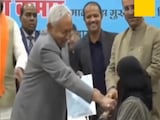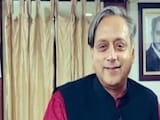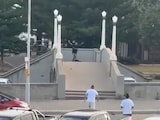Russian vaccine Sputnik V is likely to be available in market from next week, the Centre said today as the vaccine shortage in various states deepened and restrictions were brought in for vaccination. Several states including Maharashtra, are floating global tenders for vaccine supply.
"I'm happy to say that we are hopeful that it will be available in the market next week. We are hopeful that the sale of the limited supply that has come from there (Russia), will begin next week," said Dr VK Paul, chairman of the National Expert Committee on Vaccine Administration.
Union Minister Anurag Thakur tweeted on Sunday that 1.5 lakh doses of Sputnik V "have already reached India and RDIF has also tied up with local Indian companies for bulk production".
Dr Paul added that further supply will follow and the production of the vaccine will begin in July. "It is estimated that 15.6 crore doses will be manufactured in that period," he said.
A group of scientists from the United States, the Netherlands, Italy, France and Russia, meanwhile, flagged concerns over the results of phase 3 studies - specifically data discrepancies, trial protocols, and the accuracy and quality of data from which conclusions were drawn.
The Russian scientists have stressed their data meets "clear and transparent standards... considered sufficient for regulatory review and approvals".
Vaccination has been stopped in parts of the country as states try to balance the slender supplies with a huge demand. In several states including Maharashtra and Karnataka, vaccination for 18-44-year-olds have been stopped to accommodate people over the age of 45 years, who need a second dose.
Earlier today, the government cleared a 12 to 16 week gap between two doses of Covishield from the existing six to eight weeks.
"Based on available real-life evidence, particularly from the United Kingdom, the COVID-19 Working Group has agreed to increase dosing interval between two doses of Covishield to 12-16 weeks. No change in intervals for Covaxin was recommended," the government said in its statement.
A study published in international medical journal The Lancet on February 19 claimed a 26.2 per cent increase -- from 55.1 per cent to 81.3 per cent -- if doses were spaced 12 or more weeks apart.
"This is beneficial both from efficacy and immunogenicity standpoint... good scientific decision to increase the gap," said Adar Poonawalla, the chief of Serum Institute which manufactures Covishield.
But the move drew criticism from the Congress, which questioned if it was brought about by the vaccine shortage.
Senior party leader Jairam Ramesh tweeted: "First, it was four weeks for the second dose, then six-eight weeks and now we are told 12-16 weeks. Is this because there are not enough stocks of vaccines... or because professional scientific advice says so?"
"Can we expect some transparency from the Modi government?" he added.















